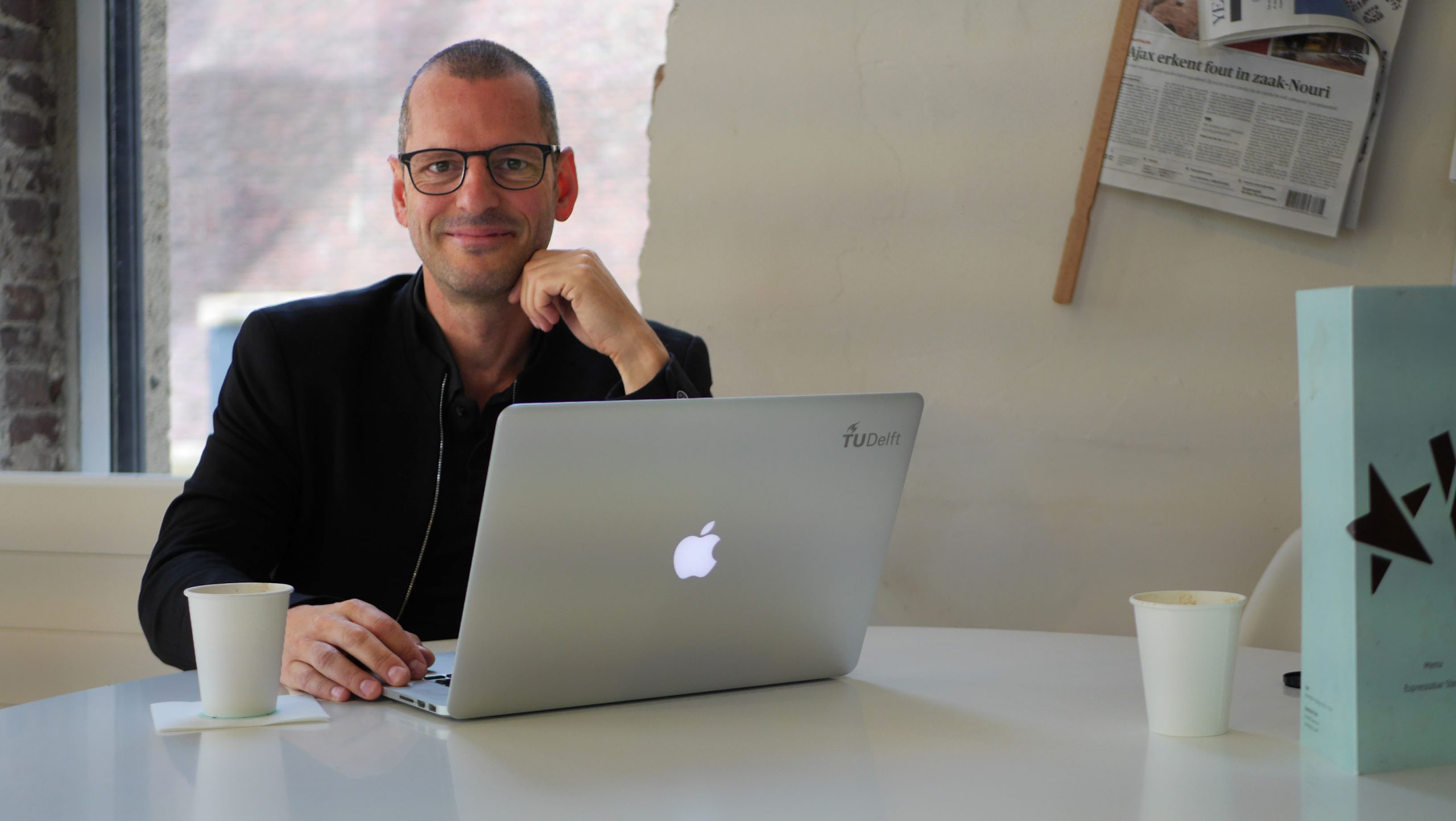If it wants to be CO2 neutral by 2030, TU Delft needs to weigh up and cost the environmental impact before taking any decision, says Professor Andy van den Dobbelsteen.
Andy van den Dobbelsteen: “Corona has shown us that we can also work from home. This has major advantages.” (Photo: Roos van Tongeren)
It sometimes feels like fighting a losing battle. Solar panels, double glazing. You think you do everything you can to reduce your CO2 emissions, but the heating is still on high while it is really hot. This is a slap in the face of Andy van den Dobbelsteen, Professor of Climate Design & Sustainability (Faculty of Architecture and the Built Environment) and, since 1 January, Sustainability Coordinator of TU Delft.
“I saw this several times last year at Architecture and the Built Environment. Someone – I assume one of the building managers – puts the radiators on high and the space heats up to 24 degrees. If you turn the dial down to two or three, it will be 20 degrees. Maybe we should replace the radiator dials with ones that show the temperature.”
This might just be one of the recommendations that Van den Dobbelsteen puts on paper for the Executive Board. He is working on an action plan that should make TU Delft CO2 neutral in 2030. Zero emissions is not feasible, but the emissions can be drastically reduced and the emissions that do remain can be compensated through tree planting, for example.
‘Shared spaces have huge advantages’
In 2019, TU Delft’s emissions were more than 49,000 tonnes of CO2 equivalents. This includes the emissions from all the commuting done by students and staff, and the food that is consumed on campus. To compensate this amount, an area of about one-and-a-half times the surface area of the municipality of Delft would need to be planted with trees (3,645 hectares).
The figures for 2020 will be known next month. Do you think the emissions will be lower because of the lockdown?
“I don’t think the impact will be that great. The proportion of commuting and trips abroad for conferences will be a lot lower, as will the proportion from food consumption. The latter though, only moves the emissions from campus to homes. But all the buildings continued to be heated and lit, even if some of them only had a few people in them. TU Delft does not yet handle this smartly.”
The corona crisis forced everyone to telework and give or follow classes remotely. Will this help the target of making the campus CO2 neutral?
“For a long time it was not done to work from home. People looked at you if you were not in the office at 09:00. This has completely changed. We have discovered that we can also be productive if we work partly from home. This has major advantages. I am a huge supporter of working two or three days on campus and the rest of the time from home. Not only would this reduce the emissions from commuting, but you need a smaller area for everyone to work.”
This is verging on a sensitive subject. Are you arguing for more hot-desking?
“A lot of people want their own desk with their plant or photos. But hot-desking has huge advantages. It is already being done at Architecture and the Built Environment. Not everybody is in the office at the same time so you can create shared space instead of small individual offices. This subject will definitely be heavily discussed and one which Campus & Real Estate and the Executive Board will need to think about. I also believe that the plans for building large lecture halls – there was an idea of building new lecture halls for 100 to 200 students – is being reexamined in the light of this. Corona has shown us that a lot of lectures can be done online.”
‘The Architecture and the Built Environment canteen only sells vegetarian food’
What else could be done to be CO2 neutral in less than 10 years?
“The environmental impact of every project and every expenditure needs to be considered. This could start in the canteen, for example. In autumn, should the new academic year approximate normality, we plan to experiment with the pricing of food in the canteens. Meat and other animal products will be more expensive and non-animal products cheaper. The plan is that the Architecture and the Built Environment canteen only sells vegetarian food.
“We also need to cost every environmental impact. EUR 130 per tonne of CO2 is realistic. We do not say that you may or may not do something. It’s fine if you fly across the world for a conference, but there is a price tag. The money that is put aside for compensation can be used to finance projects that reduce the environmental impact elsewhere. This is the principle of the CO2 tax. Whatever happens, this tax will come to Europe. We are ahead of the game with our plan.”
Do you have a question or comment about this article?
tomas.vandijk@tudelft.nl


Comments are closed.